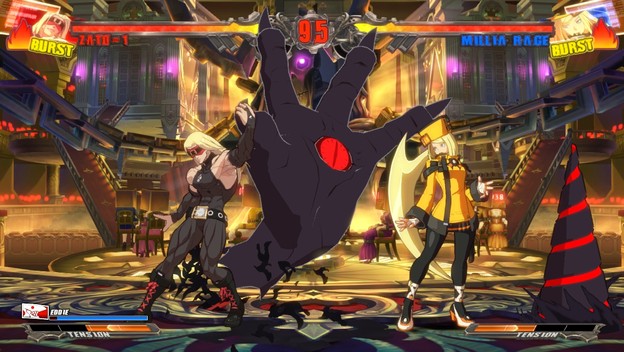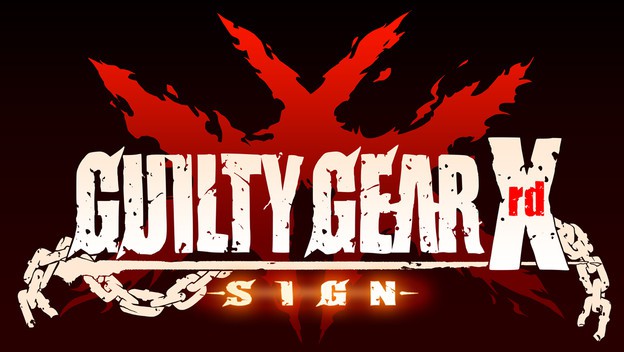Guilty Gear Xrd broke its street date and the Japanese version has been out for a while. Fighting gamers everywhere have getting back into the franchise that hasn’t seen a new installment in over ten years. And how does the fighting game community at large react to this brand new Guilty Gear ?
… This game is hard!
Yes, the new Guilty Gear doesn’t really hold your hand in any way shape or form. There are no auto combos, no input buffer, and the game is littered with half circle rotations and double quarter circles and tons of complicated inputs. There are five buttons, each of which do totally different things, special moves which use totally different buttons and whose inputs overlap with each other without any discernable pattern, supers which are almost entirely unused, and a main mechanic of roman cancels which is necessary to even play the game. There are parries, instant blocks, repels, negative penalty, insta kills, and so much more! There are so many systems in this game professional level players do not even use them all!
My question is, is this a good thing? This comes specifically from a conversation I had at a recent Guilty Gear tournament. A fellow player asked me, “Do we really need a game like this now? Do games need to be in the inaccessible realm of pros only? What does this game gain from being so hard to learn?”
Yet lots of other gamers support this level of complexity, not because the game is hard to play, and not because it alienates other players, but because it gives you so many options. It’s a throwback to an age when fighting game designers chose to simply experiment with their systems. There was no “accepted formula” when Guilty Gear was being created, and so having a ton of systems to play around with is a huge breath of fresh air to fighting gamers everywhere.
So I want to ask the question, what should games be doing? Should they be holding our hands? Or should we be left to our own devices?

Let’s look at examples in other genres. In previous Shin Megami Tensei games, whenever you fused demons or persona’s together, you would always get a random splattering of skills. This meant that, to get the persona you wanted, you had to accept, cancel, accept, cancel, accept, cancel, over and over again until you got the exact layout you wanted. Knowing that players did this, Atlus decided to simply let you pick you skills in more recent games, like Shin Megami Tensei 4 and Persona Q . In a way, this could be looked at as the RPG version of the auto-combo, the streamlining of a mechanic that everyone used in the first place but took forever to do (in the case of a combo, time was spent committing the combo to muscle memory.)
However, on the other end of the scale we have Dark Souls , a game that relishes it’s difficulty. Dark Souls is a game that is difficult to the boundary of being unfair! It has limited tutorials and asks you to fend for yourself, finding the best gear, hoarding your experience, and doing your best to avoid dying again and again and again and again. It is old-school hard, like Guilty Gear is to fighting games, and people love it.
We see this across many genres. Racing games, for example, tend to have simulation modes where you have to worry about finicky shifting and braking and steering in close to real world conditions, and beginner modes where you just hammer on the gas and drive as you would. Sports games have a bunch of different ball handling tricks that you can use in one title, and simple arcade controls in another.
And we haven’t really answered this question yet to be honest. Some people really like complicated systems. Others frown upon them. Still others are OK with complicated systems as long as there is a good tutorial.
What do you think? Should games hold our hand? Or should we be left to our own devices? Let us know what you think in the comments.
